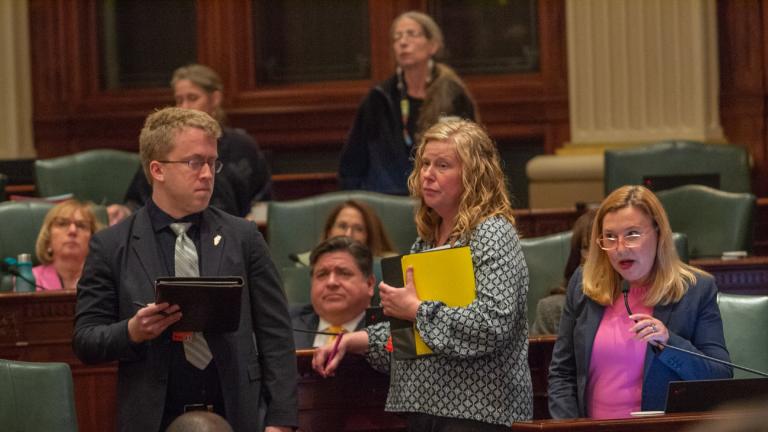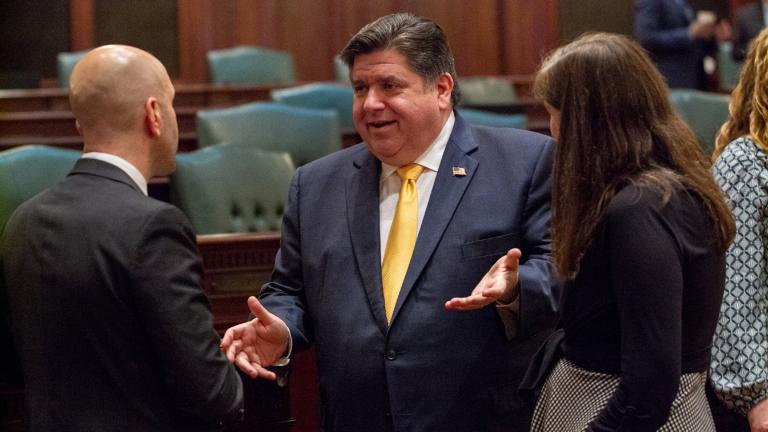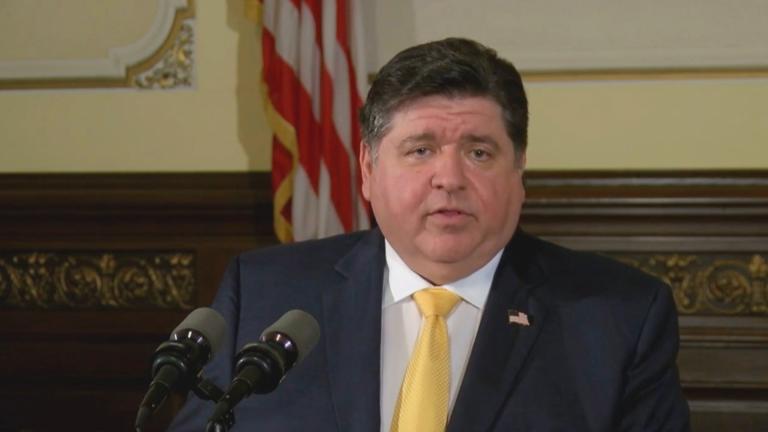It’s been a full year since Gov. J.B. Pritzker took the extraordinary step of issuing an executive order to halt dine-in service at bars and restaurants across the state in an effort to curb the spread of COVID-19.
At the time, fewer than 100 cases of the coronavirus had been reported in just 13 counties of the state.
Five days later, he issued a stay-at-home order that would last more than two months.
Since then, more than 1.2 million Illinoisans have contracted the virus, and 20,955 people in the state have died after testing positive for it.
“I feel better today than I have this entire year,” Pritzker said Monday during an interview with “Chicago Tonight.” “As you see, our numbers have significantly declined, the numbers of people going into the hospital, getting sick, going on a ventilator in an ICU, and we’ve got more people vaccinated on a per capita basis than any other of the top 10 largest states in the country.”
On Monday, Illinois launched a COVID-19 vaccine hotline to help residents book appointments — a process many have found to be challenging.
“We have a decentralized public health system in the state of Illinois, and so 97 local public health departments,” Pritzker said. “They don’t answer to the state, they answer to their local county governments. That’s been one of the challenges.”
Illinois offered the same appointment-making software to every local public health department, but many chose not to use it, he said.
Executive actions
Since the beginning of the pandemic, Pritzker has issued over 70 executive orders. Illinois Senate Minority Leader Dan McConchie has introduced a bill to curb the governor’s executive powers should an emergency last longer than 30 days, requiring that the governor work with the General Assembly to renew an order.
“When we have a flood, a flood doesn’t decide that it’s over after 30 days,” Pritzker said. “A pandemic as you’ve seen doesn’t decide that it’s over after 30 days. You’re truly dealing with an emergency here. As we have moved through the year we’ve tried to make adjustments. I’ve consulted with the legislature along the way, they have only met for a few days in 2020 and a few days in 2021. Frankly, for the people of Illinois to move forward, they’ve needed to have somebody to lead, so that we are moving the state forward, and that’s what I’ve done.”
Pritzker has faced criticism for some of those executive actions, including closing small businesses while allowing big-box stores to remain open in the early days of the pandemic.
“It’s certain that if I knew then what I know now we might have done some things differently,” Pritzker said. “This novel coronavirus hit us and we were getting very little guidance from the federal government. The Trump administration was not much help at all and then became, frankly, a hindrance along the way. We had to really find our own way as a state, and I think we did so as best we could.”
Pritzker said the state will continue to make adjustments to rules and mitigations based on COVID-19 metrics, but didn’t say when residents could expect to move to Phase 5 of the state’s reopening plan, which requires that a vaccine or highly effective treatment is widely available.
Every region in the state is currently in Phase 4.
Pritzker last week extended through April 3 the moratorium on coronavirus-related evictions first issued on March 20 last year. Pritzker said with the state rental assistance program, and the latest stimulus, he believes residents will be able to catch up on rent before the moratorium ends.
While Pritzker feels hopeful, he is asking residents to remain careful.
“I want everybody to take note that we’re not through this pandemic yet. We have to be cautious,” Pritzker said. “There are variants out there. We know that the UK variant is prevalent now in the state of Illinois, and we’ve got the Brazilian and the South African variants among us. We just want to be careful, prudent while looking at opening up the state.”








